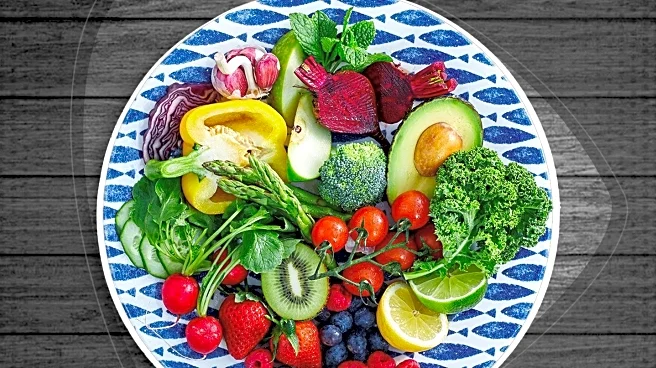What's Happening?
Veterinarians, including Jane Sykes from the University of California-Davis, are cautioning pet owners against feeding their pets raw food diets. These diets, which consist of uncooked animal products like meat, fish, eggs, or unpasteurized milk, are marketed as healthier alternatives to processed foods. However, they often contain harmful viruses, bacteria, and parasites that pose health risks to both pets and humans. Raw food diets have been linked to gastrointestinal diseases such as salmonellosis, with contamination rates of up to 80 percent. Pets can shed bacteria in their feces, which can spread to humans, especially in households with young, elderly, or immunocompromised individuals.
Why It's Important?
The popularity of raw food diets for pets has grown due to increased pet ownership and the humanization of pets, but the associated health risks are significant. The spread of bacteria like Salmonella from pets to humans can lead to serious health issues, highlighting the need for awareness and caution among pet owners. The potential for raw food diets to cause diseases such as bird flu and bovine tuberculosis further underscores the importance of safe feeding practices. Veterinarians' warnings may influence pet food industry standards and consumer choices, encouraging safer alternatives and better hygiene practices.
What's Next?
Pet owners may reconsider their feeding practices in light of these warnings, potentially leading to a shift towards safer, cooked food options. The pet food industry might respond by developing products that mimic the nutritional benefits of raw diets without the associated risks. Veterinarians and public health officials could increase efforts to educate the public on the dangers of raw food diets and promote safer feeding practices. Research may continue to explore the health impacts of different pet diets, influencing future guidelines and recommendations.
Beyond the Headlines
The debate over raw food diets touches on broader issues of pet care and the humanization of pets, reflecting societal trends in pet ownership. The risks associated with raw diets may prompt discussions about the ethical responsibilities of pet owners and the need for informed decision-making. Additionally, the potential for zoonotic diseases to spread from pets to humans highlights the interconnectedness of human and animal health, emphasizing the importance of a One Health approach in public health policy.








